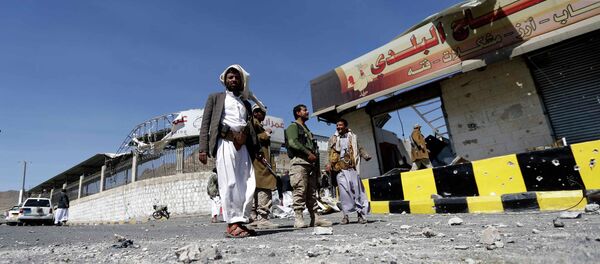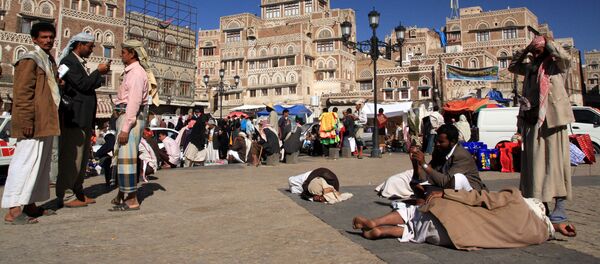The lockdown followed what Aden authorities described as an attack on the "national sovereignty" and "constitutional legitimacy" represented by Yemeni President Abdrabuh Mansur Hadi.
Over the past 48 hours, Hadi's residence and the presidential palace came under violent attacks by Houthi militants. The rebels seized the palace overnight and shelled his home. The president was unharmed.
According to media reports, hundreds of militias loyal to the president earlier entered Aden from several directions. Fighters from the so-called Popular Committees allegedly coordinated their moves with the army to protect the city and the country's second-largest Aden International Airport there.
In response to the kidnapping, leaders of Yemen's southern provinces ordered that oil and gas companies in the provinces of Shabwa, Marib, and Hadramaut halt operations.
The Houthis are the main opposition movement in Yemen, and played a major role in ousting the country's former leader Ali Abdullah Saleh in 2012. The group staged large-scale protests and occupied a number of cities in 2014, demanding the resignation of the government, which they say is corrupt and has marginalized the Shiite community.
In September 2014, the Houthi insurgency spread over to Yemen's capital Sanaa, and from there militia have advanced into central and western parts of the country.




